2022 ICTS Symposium Agenda and Speakers
Agenda
Friday May 13, 2022, 9am – 12:30pm, Central Time
Attendance will be offered in-person at the Eric P. Newman Center on the Medical School Campus or via Zoom Webinar.
| 8:30am | In-person attendee check-in. |
| 9:00–9:25am | Welcome by ICTS Director William Powderly, MD School of Medicine Remarks by Dean David Perlmutter, MD “Celebrating 15 Years of Translational Excellence” Director William Powderly will highlight ICTS achievements and discuss future initiatives as the ICTS embarks upon its fourth cycle of consecutive funding from the National Center for Advancing Translational Sciences. Winners of the poster competition will be announced. |
| 9:25–10:25am | Keynote Panel with L. Ebony Boulware, MD; Mario Castro, MD, MPH; and Rebecca Jackson, MD Moderated by William Powderly, MD “The Time is Now: Advancing Health Equity through the CTSA Program” The CTSA program is uniquely positioned to strengthen multidisciplinary research through collaboration and shared infrastructure. Principal Investigators from three CTSA hubs will share insights and strategies to increase health equity and diversity that have been implemented at their institutions. How the consortium can be leveraged to achieve maximum impact will be discussed. “Generating an Equity Mindset in Translational Research” L. Ebony Boulware, MD, MPH, CTSA PI Duke University “Increasing Workforce Diversity as a Shared CTSA Investment” Mario Castro, MD, MPH, CTSA PI University of Kansas Medical Center “Bridging Digital Divides: Approaches to Improve Data Equity and Reduce Data Biases” Rebecca D. Jackson, MD, CTSA PI The Ohio State University |
| 10:25–11:00am | Presentation by Doug Lindsay, Rare disease advocate and personal medical consultant “Subject or Subject Matter Expert? Just Ask Them.” When you ask the question “When should we involve patients in the research process?” the answer is this: at every stage. Doug Lindsay will discuss how to co-design both your studies and dissemination strategies with patients to boost enrollment and impact. |
| 11:00–11:15am | Break |
| 11:15–12:30pm | Clinical Trials Panel with Thomas Kannampallil, PhD; Doug Lindsay; Jessica Mozersky, PhD; Yi Zhang, RN, JD Moderated by Christina Gurnett, MD, PhD, ICTS Associate Director “Increasing Diverse Representation in Clinical Trials” Increased representation of diverse populations in research is crucial to health equity. This panel will examine challenges and solutions in the context of community engagement, informatics, recruitment, workforce diversity, and evaluation. |
| 12:30pm | Boxed lunches available. |
Speakers
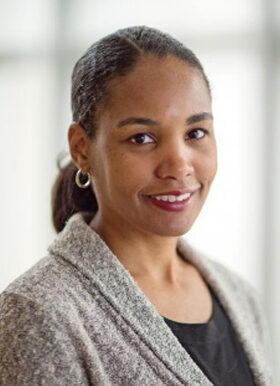
L. Ebony Boulware, MD, MPH
Nanaline H. Duke Distinguished Professor of Medicine; Chief, Division of General Internal Medicine; Director, Clinical and Translational Science Institute; Duke University School of Medicine
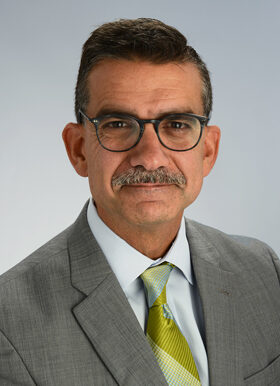
Mario Castro, MD, MPH
L. E. Phillips and Lenora Carr Phillips Professor; Chief, Pulmonary, Critical Care and Sleep Medicine; Vice Chair for Clinical and Translational Research; Director, Frontiers Clinical and Translational Science Institute; University of Kansas Medical Center
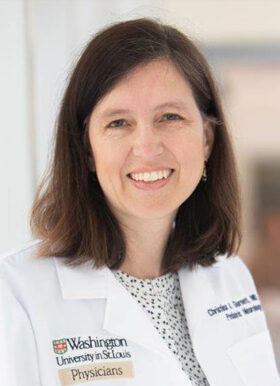
Christina Gurnett, MD, PhD
A. Ernest and Jane G. Stein Professor of Developmental Neurology; Professor of Neurology, Pediatrics; Associate Director, Institute of Clinical and Translational Sciences; Director, Division of Pediatric and Developmental Neurology; Neurologist-in-Chief, St Louis Children’s Hospital; Washington University School of Medicine in St. Louis
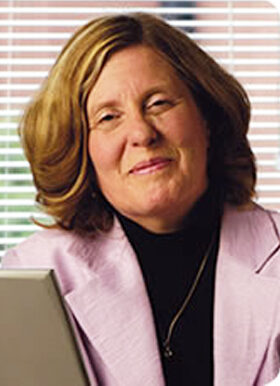
Rebecca D. Jackson, MD
Professor, Endocrinology, Diabetes and Metabolism; Max Morehouse Chair of Cancer Research; Director, Center for Clinical and Translational Science; Associate Dean, Clinical and Translational Research; The Ohio State University
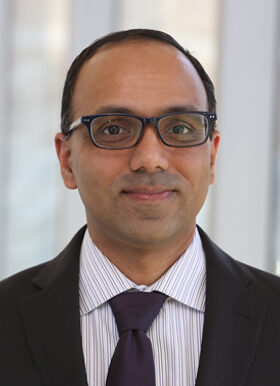
Thomas Kannampallil, PhD
Assistant Professor of Anesthesiology, Medicine and Computer Science; Associate Chief Research Information Officer; Washington University School of Medicine in St. Louis
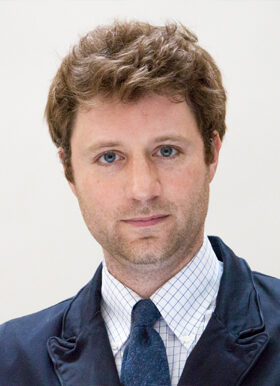
Doug Lindsay, BS
Personal Medical Consultant
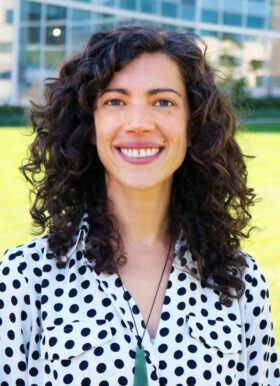
Jessica Mozersky, PhD
Assistant Professor of Medicine; Director of Consultation, Bioethics Research Center Washington University School of Medicine in St. Louis
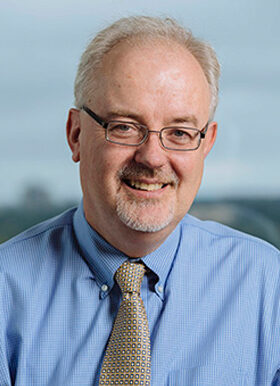
William Powderly, MD
J. William Campbell Professor of Medicine; Associate Dean for Clinical and Translational Sciences; Director, Institute of Clinical and Translational Sciences; Larry J. Shapiro Director, Institute for Public Health; Co-Director of the Division of Infectious Diseases; Washington University School of Medicine in St. Louis
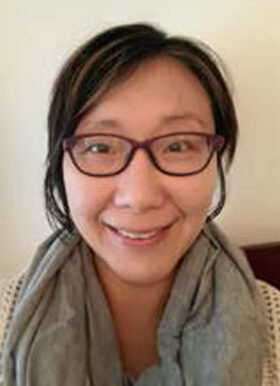
Yi Zhang, RN, JD
Assistant Dean for Clinical Research; Administrative Director, Center for Clinical Studies; Operations Officer, Clinical and Translational Research Unit; Director, Clinical Research in Oncology; Washington University School of Medicine in St. Louis